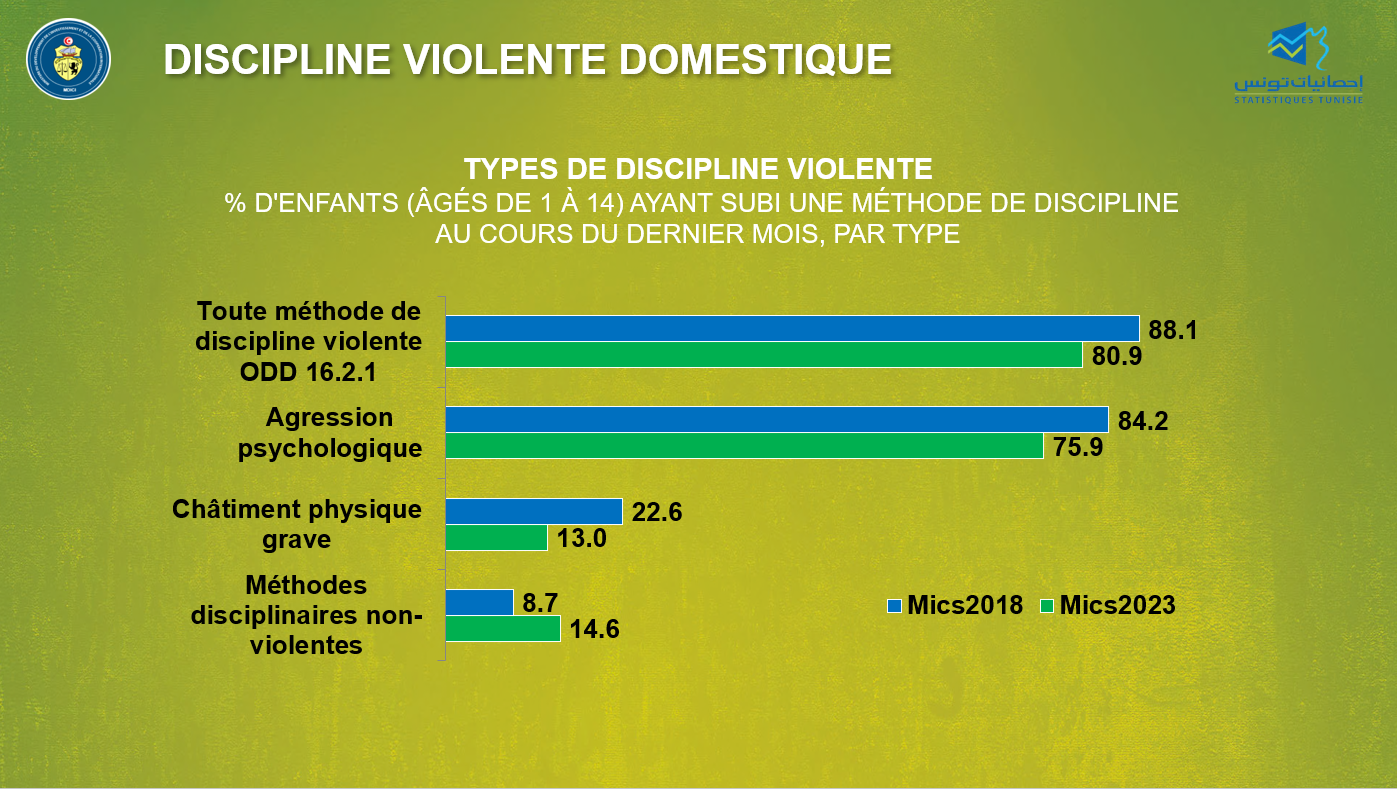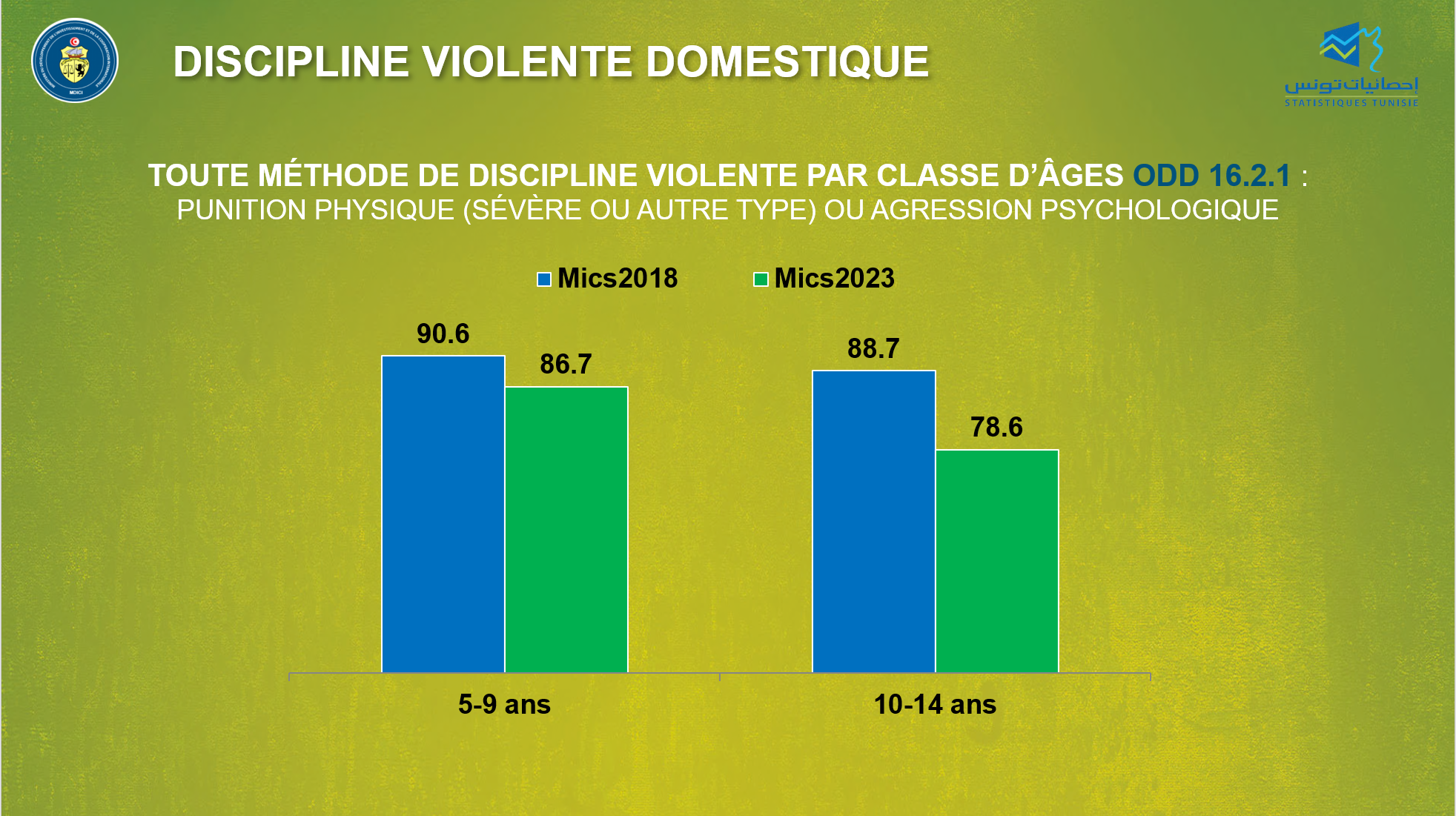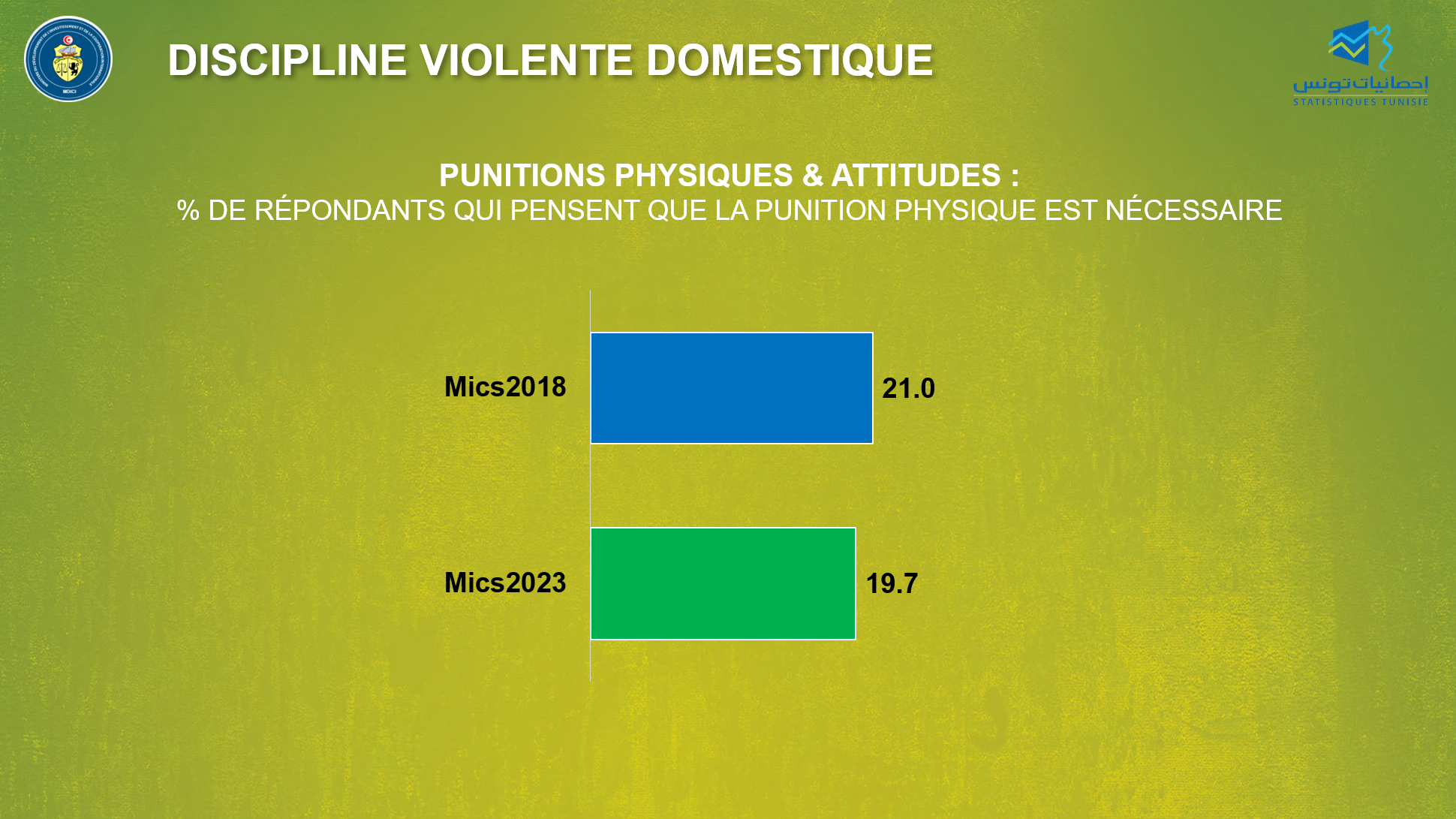New data shows modest but important decline in corporal punishment in Tunisia, affecting hundreds of thousands of children
In Tunisia, on 12 February 2024, a significant milestone was reached as the Ministry of Economy and Planning, the National Institute of Statistics, and UNICEF presented the outcomes of the fifth Multiple Indicator Cluster Survey (MICS), shedding light on the well-being of mothers and children in the country.
This comprehensive survey, encompassing 183 crucial indicators, revealed a positive trend in child protection. Notably, there has been a reduction in the use of violent disciplinary practices - from 94% in 2012 to 88% in 2018 and 81% in 2023 - and a rise in the adoption of non-violent alternatives. Despite this progress, the data underscores that 8 out of 10 children in Tunisia still face violent disciplinary methods.
there has been a reduction in the use of violent disciplinary practices - from 94% in 2012 to 88% in 2018 and 81% in 2023 - and a rise in the adoption of non-violent alternatives
Similarly, the percentage of Tunisian parents who believe that corporal punishment is necessary to educate a child decreased from 21% in 2018 to 19.7% in 2023, indicating a positive trend towards more awareness and acceptance of non-violent disciplinary methods. While this reduction is encouraging, it is concerning that approximately 1 out of 5 Tunisian parents still hold onto the belief that corporal punishment is essential for child rearing.
The statistics reveal a modest but impactful overall decline of approximately 7% in violent discipline, translating to around 240,000 fewer children subjected to such practices. Particularly encouraging is the nearly 10% decrease in severe violence, equating to approximately 330,000 fewer children enduring severe violence each month.
Particularly encouraging is the nearly 10% decrease in severe violence, equating to approximately 330,000 fewer children enduring severe violence each month.
Guest author

Antoine Deliege, PhD
Chief Child Protection, UNICEF Tunisia
https://www.linkedin.com/in/antoinedeliegeunicef/



These figures highlight how at-scale interventions such as legislation and its implementation through nationwide and systemic measures can impact very large numbers of children, even when progress is not as fast as might be desired. They also underscore the significance of consistent data collection and the imperative to monitor SDG indicator 16.2.1, which tracks the number of children experiencing violent discipline in the past month. Presently, only 89 countries worldwide monitor this indicator annually, emphasizing the urgent need for universal monitoring to safeguard children's well-being.
This progress isn't accidental. The Tunisian government has been working hard to improve child well-being through several key initiatives.
This progress isn't accidental. The Tunisian government has been working hard to improve child well-being through several key initiatives. In the realm of legal reforms, Tunisia has taken proactive steps towards safeguarding children's rights. The passing of Law No. 2010-40 of 26 July 2010 explicitly repealed the clause that allowed the "correction of a child by persons in authority over him" and made it a criminal offense to assault a child, even lightly. It provides a firm legal foundation for combating violence against children and ensures that corporal punishment is unlawful in all settings, including the home, schools, alternative care settings, and penal institutions.
The Law No. 2017-58 of August 11, 2017, on the elimination of violence against women, also represents a significant step in addressing domestic violence and protecting women and children’s rights in Tunisia. These laws are pivotal in promoting a culture of non-violence and respect for children's dignity.
The government's initiatives extend beyond legislative reforms and this legal framework aligns with Tunisia's commitment to fostering a nurturing environment for its youth. The government has spearheaded awareness campaigns like the recent national campaign to combat violence against children, titled "He will grow up, but he will not forget." It also implemented programs like positive parenting initiatives and child allowances for vulnerable families. In 2023, the Ministry of Social Affairs expanded the Universal Child Benefit to include all children aged 6 to 18 registered under the national social protection programme AMEN Social, increasing the coverage to 422,683 children from vulnerable households and marking a 250% increase in beneficiaries, reaching over 18% of children in Tunisia aged 6-18. These efforts aim to empower parents, raise awareness on effective discipline methods, and support families in need, fostering a safer and more nurturing environment for Tunisia's children.
As we reflect on the strides made thus far, it's imperative to acknowledge that the journey towards comprehensive child protection is an ongoing endeavor. The unveiling of the MICS results serves as both a celebration of progress and a poignant reminder of the work that lies ahead. By harnessing the collective resolve of government, civil society, and international partners, Tunisia is poised to chart a course towards a future where every child can flourish free from violence and adversity.
- Read our country report for Tunisia.
- Read about measures to put legal prohibition of corporal punishment into effect.
- Attend our webinar on successful norms and behaviour strategies to end corporal punishment of children in society

